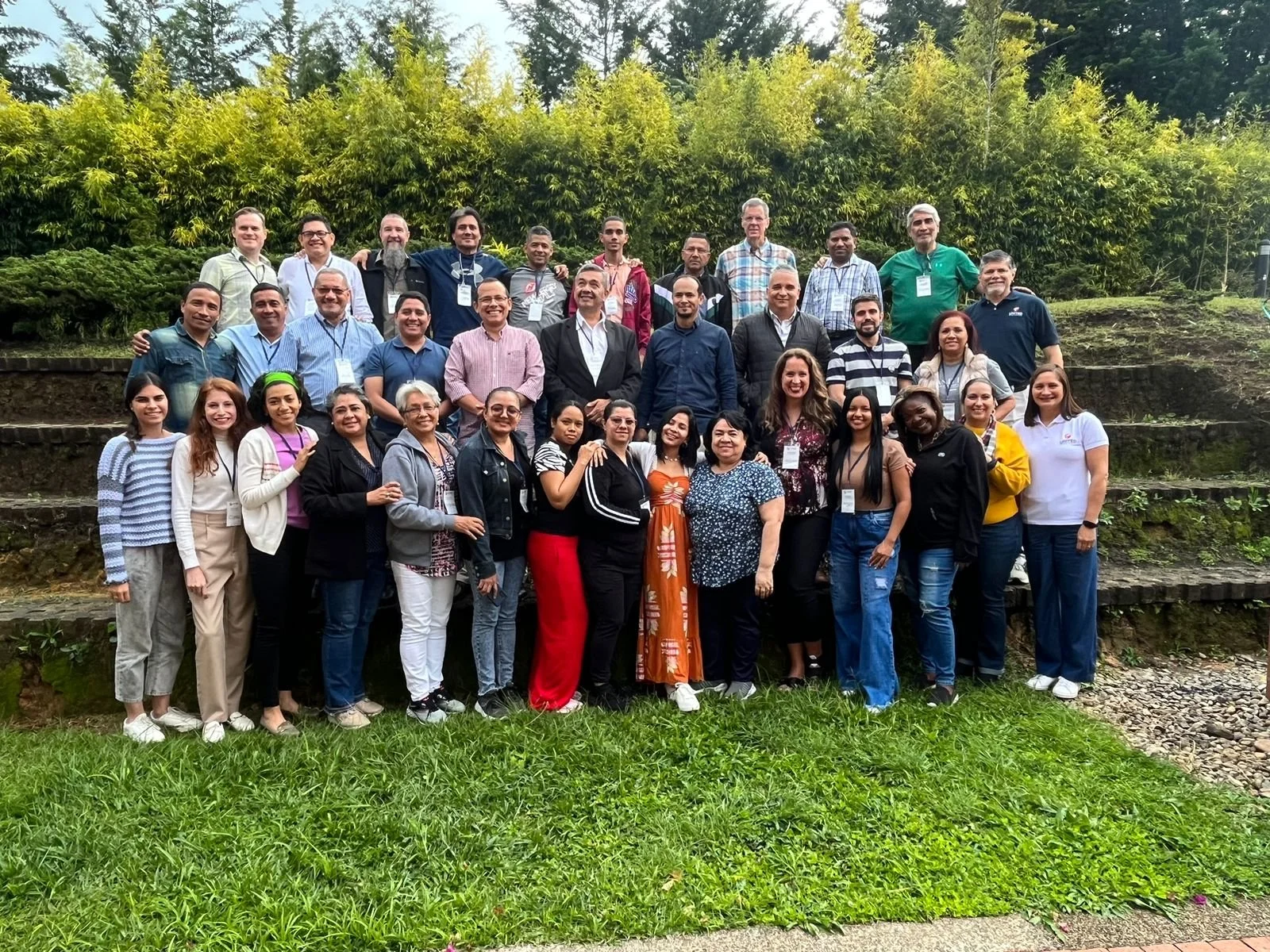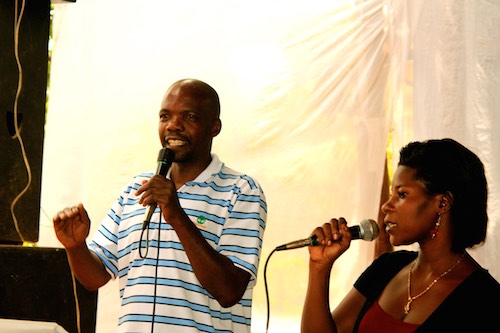Two weekends ago, East Mountain had the privilege of hosting Bill Mounce, a world-renowned New Testament scholar, author, and Bible translator. Bill was a part of the ESV and NIV 2011 Bible translations. Bill spends most of his time these days running BiblicalTraining.org, a website dedicated to training and equipping Christians at all levels. East Mountain utilizes Biblical Training’s resources in our pastoral training programs. Biblical Training supplies the content, and East Mountain provides the facilitators, the community, and the support network. Read below to hear about our weekend with Bill.
Bill with Micah and me at the East Mountain braai
On Friday, Bill visited with a cohort of Stellenbosch theology students. The students had the opportunity to dialogue with Bill about their research and his ministry experiences. One PhD student asked Bill about the importance of Biblical Languages for preaching. Bill's response, after decades of pastoral ministry: "I don't know how you stand up there and say 'Thus says the LORD' without being absolutely sure what the text means. And I don't know how you know that without the languages."
Theology students listening to Bill talk about the importance of Biblical Languages.
On Saturday, Bill lectured on Titus 2:11-16. We asked him to speak about the importance of theological studies for practical ministry. He chose to talk about the relationship of justification and sanctification, saying that so much of one’s ministry is dependent upon how one sees the relationship between justification and sanctification. Bill uses the imagery of Matthew’s gospel (7:12-13) in relation to these terms. Justification is the gate entered; sanctification is the path followed.
Here’s Titus 2:11-16 in the NIV and ESV
After the morning lecture, we shared a relaxing lunch. One of the cornerstones of our ministry here at East Mountain is that we are intentional about spending time together and getting to know one another. We view sharing meals as an important activity which facilitates deep conversations and true community.
In the afternoon, we continued discussing the converging worlds of theological reflection and practical ministry with a panel discussion on how the church can and should address the country’s biggest needs. In addition to Bill, our panel consisted of Bryan and Gabe. Bryan is an influential church leader in Cape Town. Gabe is the lead visionary for East Mountain, overseeing strategic involvement and local partnerships.
Bill, Bryan, and Gabe
The rich discussion impressed on me the importance of the work we are doing. There is a deep need for greater Biblical literacy, more theological training, and, especially, discipleship of church leaders. Paul sent out Titus and Timothy as apostolic delegates with his full authority to address the situations in Crete and Ephesus, to restore order to the churches, and set up healthy, Biblical processes for dealing with current and future issues. In the same way, God, through His Spirit and His church, is calling pastors to lead their congregations in a way that motivates believers to preach the gospel, to love their neighbors, and to work towards reconciliation and peace (2 Cor 5).
In post-apartheid South Africa, there is no shortage of need for what Paul calls the ministry of reconciliation. As I learned in our discussion, even reconciliation is a loaded term in South Africa. The chasms of inequality and mistrust run so deep, only gospel-preaching paired with gospel-living can begin to bring healing.
Would you join us praying for the Church to rise up in addressing the needs of South Africa?
Would you pray for God to be glorified through the advance of His Kingdom here and now?
Thank you for being a part of what God is doing in South Africa through East Mountain.





















